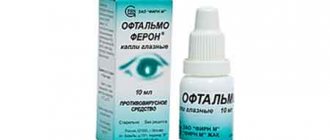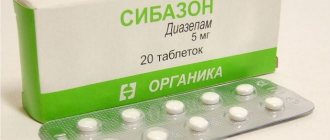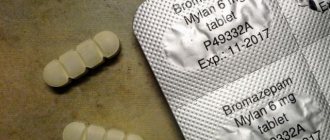Photo: attuale.ru
Photo: vseprorebenka.ru
Photo: mosmama.ru
Photo: ok.ru
IPROGIN is a hormonal drug for oral and intravaginal administration. Belongs to the group of sex hormones and modulators of the reproductive system - pregnin derivatives (G03DA04). Active ingredient: Progesterone.
You need to know that IPROZHIN reduces the lactogenic effect of oxytocin. The drug is available with a doctor's prescription!
Indications for use
Iprozhin orally is used for:
- PMS
- Diseases of the mammary glands
- Pre- and post-menopause
Medicines are used intravaginally for:
- The need to support the luteal phase in the IVF protocol
- HRT for removed ovaries
- Possibility of having a baby early
- Early menopause
- Endocrine infertility
- Threatened miscarriage
- Probability of fibroids
- Proliferation of the endometrium.
How to use vaginal tablets correctly
In order for vaginal tablets to provide optimal effects, it is worth following certain rules:
- to prepare the tablet for insertion into the vagina, you need to dip it in warm water for 20 seconds - this is written in the instructions; the tablet must be inserted deep into the vagina - the optimal body position for this is lying on your back; A tablet for thrush is inserted into the vagina in the evening before bed - after which it is not advisable to get out of bed. If the drug must be used twice a day, then you can administer the tablet in the morning - an hour before getting up; when prescribing vaginal tablets, all other intravaginal agents are not used; before inserting the tablet, you must wash your hands and thoroughly clean your nails - if your nails are long, then to protect the vagina it makes sense to wear gloves or use finger caps; If there is abundant white flake-like discharge from the vagina, it must first be washed before inserting the medicine, otherwise the tablet will not have an effect - the active substance will not reach the mucous membrane. Douching with decoctions of chamomile, calendula, and soda solution allows you to get rid of discharge, however, if a woman is pregnant, then douching for thrush is unacceptable.
Medicinal properties
The main active ingredient of the drug, progesterone, helps to contact receptors, activate DNA and stimulate RNA synthesis. The latter makes a transition of the uterine mucosa from the process of active division of endometrial tissue cells into a phase when the attachment of a fertilized egg will be possible. This creates comfortable conditions for bearing a child due to a decrease in the excitability of the uterus.
Progesterone also helps after the baby is born: it starts lactation.
An additional effect was the possibility of increasing the reserves of fat cells and leveling the level of insulin, suppressing the production of the gonads in abnormal volumes.
The drug is absorbed through the gastrointestinal tract and metabolized in the liver. The average maximum concentration in the blood is reached after 2 hours.
Protein binding is about 90%.
Iprozhin is excreted by the kidneys.
Intravaginal administration of the drug is visible in the blood plasma within an hour, and the average concentration is achieved after 4-6 hours.
Iprozhin how to use during planning and after
The lifestyle of a modern woman is such that few of them can normally undergo pregnancy on their own without harming the health and risks to the child. Therefore, before and during pregnancy, medications are often prescribed to maintain a woman’s vitality, so that it is easier for her to endure the period of gestation and childbirth. One of these drugs is Iprozhin.
This is a progesterone-containing drug necessary to ensure normal conditions during pregnancy. Available in capsule form for oral or intravaginal administration. The drug reduces contractility and excitability of the uterus. It also increases fat reserves, utilizes glucose, and promotes the formation of normal endometrium if it is too thin.
Mode of application
Price: 400 rubles
There are two ways to take the drug: orally and intravaginally.
Iprozhin, instructions for use from the manufacturer, are recommended to be taken orally before bedtime:
- Changes in breast tissue, painful menstruation, severe PMS – 200-300 mg. Course - 10 days. The time of admission is from the 17th to the 26th day of the cycle.
- Postmenopause (in combination with estrogens) – 200 mg. Course – 10-12 days.
Intravaginal administration involves the following scheme:
- Support of the luteal phase in the IVF protocol – 400-600 mg. The drug should be administered after hCG and before the 12th week of gestation.
- Egg transfer – 100 mg. Taking time: 13th and 14th day of the cycle. Then 200 mg (2 times a day, 100 mg) from days 15 to 25 of the cycle. Then increase the dose by 100 mg weekly.
- Inability to have children – 200-300 mg. Course – 10 days. The time of admission is from the 17th day of the cycle.
- Possibility of abortion – 100-200 mg twice a day. Injection should be carried out every day until the 12th week of pregnancy.
Reviews about the drug
The medication has exclusively positive reviews. Patients report that the medicine helped them restore their cycle and regulate menstruation. Those women who used the composition when there was a threat of miscarriage were able to bear and give birth to healthy babies.
What do doctors report about the use of Iprozhin during pregnancy? Reviews from doctors indicate that the medicine should not be discontinued abruptly. Unfortunately, the method of stopping the drug is not described in the instructions for use. This leads to improper use by patients and problems. Doctors always prescribe an individual dose reduction regimen for each expectant mother. Complete withdrawal from the medication occurs within three weeks.
Negative reviews about the drug are due to its side effects. Not all representatives of the fairer sex can take this medicine without consequences. Some women complain of headaches, others suffer from nausea. Often in such situations the question arises: “Iprozhin” or “Utrozhestan” - which is better? Let's try to conduct a comparative analysis.
Contraindications and precautions
Contraindications include:
- Sensitivity to one or more components in the composition
- Tendency to thrombosis
- Vaginal blood loss for unknown reasons
- Vein diseases
- Presence of fertilized egg or part thereof in the uterine cavity
- Liver failure
- Lactation
- Neoplasms in the breast.
Precautionary measures include the presence of cardiovascular diseases, diabetes mellitus, asthma, chronic renal failure, mood swings, epilepsy and hypertension.
It must be taken into account that the drug affects the ability to drive a car and operate complex mechanisms.
Iprozhin
Iprozhin cannot be used for contraception.
The drug should not be taken with food, since food intake increases the bioavailability of progesterone.
Use after the first trimester of pregnancy may cause the development of cholestasis.
The drug should be taken with caution in patients with diseases and conditions that may be aggravated by fluid retention (arterial hypertension, cardiovascular disease, chronic renal failure, epilepsy, migraine, bronchial asthma); in patients with diabetes mellitus; liver dysfunction of mild to moderate severity: photosensitivity.
Patients with concomitant cardiovascular diseases or a history of them should be periodically observed by a doctor.
Patients with a history of depression should be monitored, and if severe depression develops, the drug should be discontinued.
During long-term treatment with progesterone, regular medical examinations (including liver function tests) are necessary; Treatment should be discontinued if abnormal liver function tests or cholestatic jaundice occur.
When using progesterone, it is possible to reduce glucose tolerance and increase the need for insulin and other hypoglycemic drugs in patients with diabetes mellitus.
If amenorrhea occurs during treatment, pregnancy must be excluded.
If the course of treatment begins too early at the beginning of the menstrual cycle, especially before the 15th day of the cycle, a shortening of the cycle and/or acyclic bleeding is possible. In case of acyclic bleeding, the drug should not be used until the cause is determined, including a histological examination of the endometrium.
More than 50% of spontaneous abortions in early pregnancy are caused by genetic disorders. In addition, the cause of spontaneous abortions in early pregnancy can be infectious processes and mechanical damage. The use of Iprozhin in these cases can only lead to a delay in rejection and evacuation of a non-viable fertilized egg. The use of the drug to prevent habitual abortion is justified only in cases of progesterone deficiency.
When carrying out HRT with estrogen-containing drugs during perimenopause, it is recommended to use Iprozhin for at least 12 days of the menstrual cycle.
With a continuous HRT regimen in postmenopause, it is recommended to use the drug from the first day of taking estrogen-containing drugs.
When carrying out HRT, the risk of developing venous thromboembolism (deep vein thrombosis or pulmonary embolism), the risk of ischemic stroke, and coronary heart disease increases.
Due to the risk of developing thromboembolic complications, the use of the drug should be discontinued if: visual disturbances such as loss of vision, exophthalmos, double vision, vascular lesions of the retina occur; migraine; venous thromboembolism or thrombotic complications, regardless of their location.
If there is a history of thrombophlebitis, the patient should be closely monitored. When using Iprozhin with estrogen-containing drugs, you must refer to the instructions for their use regarding the risks of venous thromboembolism.
The results of the clinical study Women Health Initiative Study (WHI) indicate a slight increase in the risk of breast cancer with long-term, more than 5 years, combined use of estrogen-containing drugs with gestagens. Regarding the use of estrogen-containing drugs in combination with progesterone as part of HRT, there is no evidence of an increased risk of breast cancer.
The WHI study also found an increased risk of dementia when starting HRT after age 65 years.
Before starting HRT and regularly during it, a woman should be examined to identify contraindications to her behavior. If clinically indicated, a breast examination and gynecological examination should be performed.
If there is a history of chloasma or a tendency to develop it, patients are advised to avoid UV irradiation.
The use of progesterone may affect the results of some laboratory tests, including liver and thyroid function tests; coagulation parameters; pregnanediol concentration.
When taken orally, caution must be exercised when driving vehicles and engaging in other potentially hazardous activities that require increased concentration and speed of psychomotor reactions.
Cross-drug interactions
Barbiturates, phenytoins, phenylbutazones, rifampicins and spironolactones together with taking drugs capsules will cause an acceleration of progesterone metabolism.
The effect of drugs aimed at reducing the formation of blood clots, diuretics and blood pressure lowering agents is enhanced by Iprozhin.
If Iprozhin is taken at the same time as penicillins and tetracyclines, this will cause a decrease in the effectiveness of the former.
Diabetics will be forced to increase the dose of insulin due to the progesterone included in the drug.
Ketoconazole increases the amount of drug reaching the site of action.
Mechanism of action
The instructions for use for the drug "Iprozhin" indicate that the gestagen in its composition is a corpus luteum hormone. Thanks to its action, the proliferative phase of the uterine mucosa passes into the secretory phase. When the fertilization process is completed, the uterus is completely ready for the development of a fertilized egg. Its contractility and excitability decrease, the end elements of the mammary glands are stimulated to develop.
The drug stimulates protein lipase and helps increase fat reserves. Glucose is better absorbed by the body, insulin concentration increases, and nitrogen is better excreted by the kidneys. The production of aldosterone is activated, glycogen accumulates in the liver, and azotemia decreases. This will be confirmed by the instructions for use for the drug “Iprozhin”.
The capsules activate the secretory department in the mammary glands, which has a beneficial effect on preparation for lactation. The endometrium develops normally. It is well absorbed from the gastrointestinal tract; maximum concentrations can be noted within three hours after ingestion of the drug. If it is used intravaginally, the drug is quickly absorbed; an increased concentration of progesterone in the blood can be determined after just an hour. 90% bound to proteins. Metabolization in the liver is ensured by the enzyme system. 60% of the medication is excreted by the kidneys.
Analogs
Utrozhestan
Besins Healthcare, Belgium
Price: 450 rub.
Utrozhestan capsules are prescribed for the possibility of spontaneous abortion, progesterone deficiency, HRT, artificial insemination, problems with the female reproductive system. If you choose which is better: Iprozhin or Utrozhestan, then, according to those who have taken it, the first is better due to the fact that it does not leak during intravaginal use and does not provoke thrush, because the composition is not oily.
Pros:
- Helps well
- Several ways to take it
- Inexpensive.
Minuses:
- Possible allergies
- It must be withdrawn gradually.
During pregnancy
The medicine “Iprozhin” and its analogues are prescribed in the first half of the term. Often during this period of time a woman faces the threat of termination of pregnancy. This usually occurs due to uterine pathologies or insufficient ovarian function.
The described medicine can solve these problems. That is why it is prescribed during pregnancy in an appropriate dose. It is worth noting that independent use of the medicine is prohibited. If you have started taking this medication, it is prohibited to stop the correction without a doctor’s prescription. Discontinuation of the drug usually occurs between the sixteenth and twentieth weeks.
Contraindications for use
Contraindications to the use of this drug are:
- allergic reactions to the active substance auxiliary components of Iprozhin;
- thrombophlebitis of the veins of the lower extremities;
- abortive process;
- malignant neoplasms of the genital organs and mammary glands;
- discharge of blood from the vagina due to an unknown reason;
- diseases of the cardiovascular system, myocardial infarction, pulmonary embolism;
- lactation;
- childhood.
Utrozhestan or Prajisan - which is better during pregnancy
Manufacturer: Sun Pharmaceutical Industries, India
Release form: capsules
Active ingredient: progesterone
For many, the relevant question is whether it is possible to replace Prajisan 200 with Utrozhestan 200 due to the difference in price. Both medications belong to the same pharmacological group and contain progesterone. Indications, contraindications, side effects are the same.
The possibility of replacement should be discussed with your doctor. Utrozhestan is more often prescribed and has been more studied. The cost of the medicine is up to 20% higher.
According to patient reviews, the analogue of Utrozhestan 200 suppositories dissolves better during pregnancy because it contains peanut oil. The excipient of the original drug is sunflower oil.











